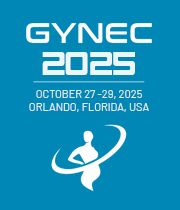Title : Effect of an anti-inflammatory diet on dietary inflammatory index and immune-inflammatory biomarkers in patients with endometriosis: A cohort study
Abstract:
Introduction: Endometriosis is a chronic inflammatory gynecological disorder that adversely affects women’s quality of life and metabolic health. Both pharmacological and nutritional strategies are used in its management. Dietary interventions have attracted increasing attention for their ability to modulate metabolic and inflammatory markers. However, the effects of hormonal therapies, such as dienogest, on the outcomes of dietary interventions remain unclear. This study aimed to assess the impact of a structured dietary intervention on the Th17 profile, Dietary Inflammatory Index (DII), biochemical markers, and dietary adherence in women with endometriosis, stratified by dienogest use.
Methods: This longitudinal cohort study involved forty-one women with endometriosis (median age: 35 years; IQR: 7). The study was approved by the Institutional Research Ethics Committee (CAAE: 44352921.6.00005292). IL-17 levels were measured by flow cytometry using the Cytometric Bead Array (CBA) kit. The DII, dietary adherence scores, and biochemical markers were evaluated before and after (6 months) the intervention. Paired and independent statistical tests were used for comparisons, and effect sizes were calculated. Subgroup analyses were performed according to dienogest use.
Results: We found that IL-17 levels were not significantly affected by the diet post-intervention (p < 0.01), even in the stratified analysis. However, levels of the immunomodulatory vitamin D increased significantly after the intervention (from 28.0 to 30.0 ng/mL, p = 0.003). Both the DII and diet adherence scores also improved significantly (p ≤ 0.004). No significant differences were observed between dienogest users and non-users at each time point; however, when stratified, both groups showed significant improvements following the dietary intervention. Specifically, median values of glycaemia (95.0 to 90.0 mg/dL, p < 0.001), glycated hemoglobin (HbA1c; 5.6 to 5.4%, p < 0.001), total cholesterol (186 to 175 mg/dL, p < 0.001), triglycerides (104.0 to 99.0 mg/dL, p = 0.002), AST (22.0 to 20.0 U/L, p < 0.001), and ALT (25.0 to 21.0 U/L, p < 0.001) all decreased significantly after the intervention. In the dienogest group, significant reductions were noted in glycaemia, HbA1c, AST, ALT, and diet adherence scores (all p ≤ 0.007). Among non-users, improvements were observed in glycaemia, HbA1c, total cholesterol, LDL cholesterol, triglycerides, DII, and diet adherence (all p ≤ 0.024). Furthermore, a positive correlation was found between HbA1c and DII (rs = 0.548; p = 0.012), and a negative correlation between vitamin D and DII (rs = -0.518; p = 0.019) in dienogest users prior to the intervention.
Conclusion: The dietary intervention significantly improved vitamin D levels, metabolic parameters, and inflammatory diet scores in women with endometriosis, regardless of dienogest use, although Th17 profile remained unchanged. These findings highlight the potential of anti-inflammatory diets as complementary therapies alongside hormonal treatment. However, larger cohort studies are needed to confirm these results and further clarify the interactions between diet, immune-inflammatory markers, and pharmacological interventions.



